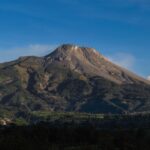Growing up in Venezuela, I witnessed firsthand how the country’s socialist economic policies created a struggle for survival. Each day, as I peered out of my dad’s car window, I saw individuals digging through trash in search of food—a stark reminder of the harsh reality that many faced.
In 2016, amidst a backdrop of Venezuelans facing starvation, President Nicolás Maduro introduced a new initiative known as CLAP. Maduro claimed that this program would herald a “new economic revolution in Venezuela’s food sector.”
The program aimed to provide Venezuelan families with essential food boxes on a regular basis, but these deliveries were often delayed or contained inedible items—particularly the powdered milk.
Juan Andrés Ravell uncovered a massive corruption scandal surrounding the CLAP program in a recent documentary for PBS’s Frontline titled “A Dangerous Assignment.” The documentary followed investigative reporter Roberto Deniz as he delved into where the funds allocated for CLAP truly ended up. Deniz’s investigation led him to Alex Saab, a close associate of Nicolás Maduro, who secured contracts to import food for the CLAP program. Saab rapidly amassed wealth, constructing opulent residences, marrying a former Italian supermodel, and acquiring luxurious properties in affluent areas like Rome. Ravell informed Reason that, “Since 2013, Alex Saab was Maduro’s preferred contractor, operating discreetly in the shadows.”
Deniz’s reporting revealed that Saab, as a contractor, was responsible for the substandard food distributed through the CLAP program to Venezuelan families. He was also implicated in paying kickbacks to Maduro. In response, Saab sued Deniz for defamation and libel. Fearing for his safety, Deniz fled the country to continue his investigation.
In 2019, Saab faced charges of money laundering and was sanctioned by the Treasury Department. The following year, he was apprehended in Cape Verde while en route to Iran, leading to his extradition to the U.S. The Venezuelan regime then embarked on a campaign to restore Saab’s reputation, aided by leftist activists who portrayed Saab as a champion of the underprivileged bravely challenging the imperialistic U.S. government.
Saab was eventually extradited to a Miami detention center on charges of embezzling $350 million and falsifying documents. A surprising revelation emerged during court proceedings: Saab had been acting as a double agent, providing U.S. law enforcement agencies with intelligence on corruption within the Maduro administration. “It remains unclear why Maduro continued to support Saab despite knowing his role as a DEA informant. Saab’s attorney claimed that Maduro was fully aware of Saab’s actions. The situation is complex,” Ravell conveyed to Reason.
Presently, Alex Saab is a free man. Following his extradition to Miami two years ago, the Biden administration negotiated a swap for 10 American detainees. Upon returning to Venezuela, Saab was welcomed as a hero by Maduro.
Did Maduro have prior knowledge of Saab’s role as a U.S. informant? Why was he insistent on repatriating Saab from the U.S.? These questions linger as the documentary unfolds like a gripping crime thriller. Ravell remarked to Reason that Venezuela exhibits a “mafia mentality,” emphasizing, “Venezuela epitomizes a kleptocratic state—governed by individuals seeking personal enrichment to retain power.”
Following the release of “A Dangerous Assignment,” the Venezuelan regime attempted to restrict access, but their efforts were futile. Despite Maduro’s defeat in the recent election, he remains in power, delaying the prospect of justice for Saab and his accomplices. Nevertheless, the documentary has influenced public discourse, underscoring the consensus—both domestically and internationally—that Venezuela is ruled not only by an oppressive regime but by a cohort of corrupt individuals who have enriched themselves by diverting funds intended for impoverished children’s sustenance.
Photo Credits: Alejandro Rojas Dagg, CC BY-SA 3.0, via Wikimedia Commons; Miguel Gutiérrez/EFE/Newscom; El Informador Diario Online Venezolano, CC BY 3.0, via Wikimedia Commons; Abraham Salazar—Efecto Cocuyo, CC BY 3.0, via Wikimedia Commons; Humberto Matheus/ZUMA Press/Newscom; Humberto Matheus/ZUMA Press/Newscom; Humberto Matheus/ZUMA Press/Newscom; Ramses Mattey/ZUMA Press/Newscom; NoonIcarus, CC BY-SA 4.0, via Wikimedia Commons; Wilfredor, CC0, via Wikimedia Commons; ZiaLater, CC BY-SA 3.0, via Wikimedia Commons; Eneas De Troya from Mexico City, México, CC BY 2.0, via Wikimedia Commons; MIGUEL GUTIERREZ/EFE/Newscom; Jesus Vargas/dpa/picture-alliance/Newscom; Gil-Gonzalez Alain/ABACA/Newscom; Jesus Vargas/dpa/picture-alliance/Newscom; Jimmy Villalta / VWPics/Newscom; Javier Campos/ZUMAPRESS/Newscom; myself (User:Piotrus), CC BY-SA 3.0, via Wikimedia Commons; VENEZUELA’S PRESIDENCY / Xinhua News Agency/Newscom; Jeampier Arguinzones/dpa/picture-alliance/Newscom; Jimmy Villalta / VWPics/Newscom; Vuk Valcic/ZUMAPRESS/Newscom; Jeampier Arguinzones/dpa/picture-alliance/Newscom; Jeff Malet Photography/Newscom; Eva Plevier/ANP/Newscom; MIGUEL GUTIERREZ/EFE/Newscom; VENEZUELA’S PRESIDENCY / Xinhua News Agency/Newscom
- Video Editor: Regan Taylor
- Video Editor: César Báez
- Audio Production: Ian Keyser




